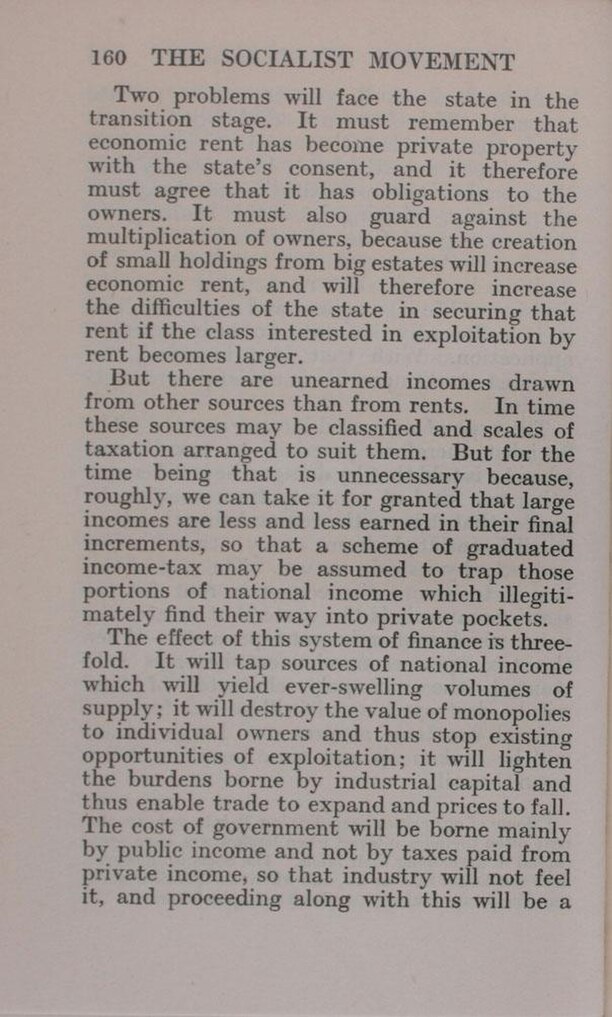Two problems will face the state in the transition stage. It must remember that economic rent has become private property with the state's consent, and it therefore must agree that it has obligations to the owners. It must also guard against the multiplication of owners, because the creation of small holdings from big estates will increase economic rent, and will therefore increase the difficulties of the state in securing that rent if the class interested in exploitation by rent becomes larger.
But there are unearned incomes drawn from other sources than from rents. In time these sources may be classified and scales of taxation arranged to suit them. But for the time being that is unnecessary because, roughly, we can take it for granted that large incomes are less and less earned in their final increments, so that a scheme of graduated income-tax may be assumed to trap those portions of national income which illegitimately find their way into private pockets.
The effect of this system of finance is three-fold. It will tap sources of national income which will yield ever-swelling volumes of supply; it will destroy the value of monopolies to individual owners and thus stop existing opportunities of exploitation; it will lighten the burdens borne by industrial capital and thus enable trade to expand and prices to fall. The cost of government will be borne mainly by public income and not by taxes paid from private income, so that industry will not feel it, and proceeding along with this will be a
